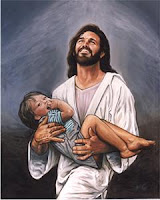I don't claim to be an expert on the current State of Israel. This is an issue that gets people hot under the collar. I am not trying to stir up anyone's political or even theological juices. What excites me is the Living Word, and if you look there, you will find truth!
This week’s topic is about Israel. Tony C’s post yesterday
reflects my own searching over the hot button issue of modern-day Israel. Many
evangelical Christians are strongly asserting that we “must” support Israel’s
claim to its lands in Palestine since in the Bible they are referred to as God’s
chosen people and He gave them the land. Meanwhile, there are others (mainly
left-wing, politically) who emphatically believe Israel has no right to
Palestine, and consistently blame Israel for the violence in that area.
 When I read the history of the Israelites, which you can
find in the Old Testament, I have no doubt that God blessed the people of
Israel and covenanted with them to lead them, provide for them and fellowship
with them. If you doubt the Bible,
Israel’s history is well documented in the annals of other contemporaneous
kingdoms. One of my absolute
favorite classes in seminary was Dr. Carol Kaminski’s Survey of the Old
Testament. Another is Dr. Gordon Hugenberger’s “Messiah in the Old Testament.”
When I read the history of the Israelites, which you can
find in the Old Testament, I have no doubt that God blessed the people of
Israel and covenanted with them to lead them, provide for them and fellowship
with them. If you doubt the Bible,
Israel’s history is well documented in the annals of other contemporaneous
kingdoms. One of my absolute
favorite classes in seminary was Dr. Carol Kaminski’s Survey of the Old
Testament. Another is Dr. Gordon Hugenberger’s “Messiah in the Old Testament.” Dr. Kaminski, through use of her amazing tool, CASKET EMPTY, explains the chronological history of Old Testament Israel, something that is difficult to figure out if you attempt to read the OT in order (the books are primarily in length order, not in chronological order). Dr. Hugenberger, on the other hand, unveiled for blind eyes that the plan for the Savior Jesus is evident even from the Garden of Eden.
Those were exciting classes for me! I finally understood
what the deal was with all those kings, why the nation divided, and why Israel
was consistently taken captive in the years after the nation divided: SIN and
REBELLION. I mentioned the covenant earlier: a covenant goes both ways: God
said he would do such and such, and Israel promised to do such and such. The
problem was that Israel consistently broke the covenant over hundreds of years.
They would turn back to God when things got too harsh and then rebel as
their hearts again grew hard.
That is why Jesus is decrying the disobedience and murderous
hearts of a covenantal people: “O Jerusalem, Jerusalem, you who kill the
prophets and stone those sent to you, how often I have longed to gather your
children together, as a hen gathers her chicks under her wings, but you were
not willing! Look, your house is left to you desolate.”
Jesus died for all the world, both Jew and Gentile, for
every nation and every people group (John 3:16). The New Covenant spoken of by the OT prophet Jeremiah (chapter 31) came to fruition through the death and resurrection of
Jesus: “I am the way, the truth and the life, and no one comes to the Father
but through me” (John 14:6). I believe salvation, desperately needed by each
one of us to free us from the chains of darkness and death, is for all who look on
that cross and believe.
Only God’s love can transform Israel, Palestine and the rest
of this planet, one person at a time. So, when I am tempted to think I know God's mind about the Palestinian people, or the Muslims, or the Jews, or Americans for that matter, I am reminded of my own penchant for hatred or ignorance or misunderstanding, and I must return to the words of Jesus: “You have heard that it was said, ‘Love your neighbor and hate your enemy.’ But I tell you, love your
enemies and pray for those who persecute you, that you may be children of your
Father in heaven. He causes his sun to rise on the evil and the good, and sends
rain on the righteous and the unrighteous. If you love those who love you, what reward will you
get? Are not even the tax collectors doing that? And if you greet only your own
people, what are you doing more than others? Do not even pagans do that? Be
perfect, therefore, as your heavenly Father is perfect" (Matt. 5:43-48).
Image of green door in the old city Zefat, from wikimedia.org.
Image of green door in the old city Zefat, from wikimedia.org.












